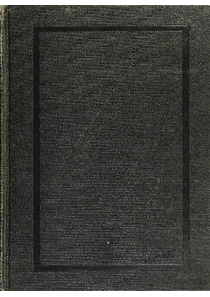What does the future hold for young British-Somali women fighting against cultural practices like FGM? A bold movement is sweeping through communities, driven by education and creative expression. These women are not only challenging deep-rooted traditions but also reshaping societal norms with rhyme and reason.
In Bristol, as the 'cutting season' looms, students and pupils are taking a stand against female genital mutilation (FGM). This issue has long been a contentious topic within the Somali diaspora, where cultural preservation often clashes with human rights advocacy. The movement leverages poetry, music, and dialogue to educate both peers and elders about the harmful effects of FGM. By engaging in open conversations, these young advocates aim to dismantle misconceptions while promoting healthier alternatives for community development.
| Name | Young British-Somali Women Advocates |
|---|---|
| Location | Bristol, United Kingdom |
| Cause | Fighting against Female Genital Mutilation (FGM) |
| Methods | Poetry, Music, Dialogue, Education Campaigns |
| Affiliations | Local Schools, Community Organizations |
| Reference | UNICEF - Ending FGM |
Meanwhile, technology continues to bridge gaps between cultures and languages. An innovative app designed specifically for translating Somali to English—and vice versa—has emerged as a valuable tool for communication. This free application simplifies interactions between speakers of both languages, proving especially useful for travelers, educators, and professionals working across linguistic barriers. Its functionality extends beyond mere translation; it fosters understanding and collaboration among diverse populations.
The impact of such tools becomes evident when considering initiatives like Seattle's Democracy Vouchers program. Boonooyinka Dimuquraadiyadda serves as a participatory mechanism allowing residents to allocate funds towards civic projects they deem most beneficial to their neighborhoods. For Somalis living in Seattle, this platform provides an opportunity to engage actively in local governance, ensuring that their voices are heard and needs addressed. Through effective use of resources and partnerships, communities can thrive together regardless of ethnic or cultural differences.
TikTok users have also embraced Somali culture through viral trends centered around wasmo—a term encompassing various forms of entertainment including music, dance, and storytelling. In 2023 alone, numerous videos celebrating Somali heritage gained traction worldwide, sparking discussions about identity, tradition, and modernity. From Aisha Miss Somalia competitions to Ethiopian collaborations, these clips highlight the richness of East African artistry while encouraging cross-cultural exchange.
On another front, Gujarat's Water and Sanitation Management Organization (WASMO) exemplifies successful institutional innovation. Established as an autonomous body, WASMO empowers rural communities to manage their own water supply systems sustainably. Their mission aligns closely with global efforts to improve access to clean water and sanitation facilities, particularly in underserved areas. By fostering self-reliance and capacity building, WASMO contributes significantly to improving public health outcomes throughout India.
Healthcare providers catering to Somali-speaking patients benefit immensely from comprehensive resources available online. MedlinePlus offers extensive information translated into Af-Soomaali, covering topics ranging from maternal care to infectious diseases. Such services ensure equitable access to critical knowledge, empowering individuals to make informed decisions regarding their well-being. Furthermore, digital platforms enable healthcare workers to stay updated on best practices specific to multicultural patient populations.
As we delve deeper into these interconnected narratives, one cannot overlook the significance of language preservation amidst globalization pressures. While younger generations may adopt dominant tongues for professional advancement, maintaining native dialects remains crucial for cultural continuity. Tools like Glosbe—a bilingual dictionary offering computer-generated translations—play pivotal roles here. They provide accurate definitions alongside contextual usage examples, helping learners grasp nuances unique to each phrase.
Ultimately, whether addressing social justice issues, technological advancements, or public service delivery, collaboration stands at the heart of progress. When diverse stakeholders come together, sharing expertise and resources, transformative change becomes possible. Young British-Somali activists remind us that even seemingly insurmountable challenges yield to determination and creativity. Similarly, organizations like WASMO demonstrate how tailored solutions can address complex problems effectively.
Thus, as our world grows increasingly interconnected, embracing diversity and leveraging technology will remain key strategies for achieving shared goals. Whether advocating for human rights, facilitating cross-cultural exchanges, or enhancing community resilience, every effort counts toward creating a more inclusive and equitable society. Together, we build bridges rather than walls, fostering mutual respect and understanding along the way.




